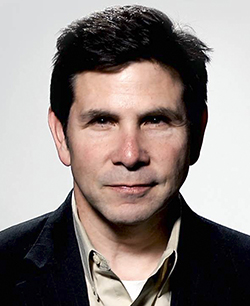James is only 15 years old, but this enthusiastic Christian teen has already immersed himself in ministry. “Lots of my friends aren't Christians," he lamented in one of our recent conversations. “More and more claim to be atheists.” This evangelistic teen noted an obstacle to the Gospel that is unique to our 21st-century world: “Lots of my friends dismiss Christianity by saying, ‘Jesus might be true for you, but not for me. I have my own truth.’ How do you get around that?”
Rejection of truth has become a pandemic in America and the West. The assumed fact is that we may each craft our own facts and our own reality. Millions today live as if they each make their own personal truths, going through life blissfully unscathed by facts that run counter to blind biases. I've witnessed examples of this every time I have shared Christ on more than 200 American university campuses ⎯ and Christian schools are not exempt.
The question is really this: “Are there any universal truths, applicable to all people?” And the answer is, “Of course.” For example, all humans must have oxygen, water, and food in order to survive. Deprivation of these things long enough will result in death. No exceptions. So clearly, there are some truths (i.e., unavoidable realities) applicable to all people.
It's like noting that the earth's axis rests at a 23-degree tilt, North America is in the Western Hemisphere, and Ronald Reagan was president in 1984. These are not matters of opinion or preference. They are examples of truth.
When Christians are sharing the Gospel, we are stating objective truths. Christ’s resurrection is not “my truth” (though I definitely believe it); it is simply “truth.” The Gospel’s veracity and relevancy are in no way tied to the fact that Christians accepted it. Christ’s death for the world is true… because it happened.
I often ask people a series of questions like "Could we agree that the existence of some objective truths is at least possible? And could one of those truths be that Jesus Christ is the Son of God? And who proved Himself by rising from the dead?” When engaged in respectful conversation, most people will agree that it is logically possible that some universally-applicable truths exist.
Diffusing this common assumption (“there is no truth”) does much to clear the way for a person to seriously think about forgiveness in Christ. Ever-logical Thomas Aquinas (1225-1274) noted that if anything is true, then truth exists. God wants all nations to know that Jesus is Lord and salvation is possible. More than ever, James’ generation and our culture overall must hear this truth for themselves.
Alex McFarland is the founder of the Truth For A New Generation Apologetics Conferences and has been writing and speaking on apologetics for over 25 years. Find him online, at www.alexmcfarland.com






